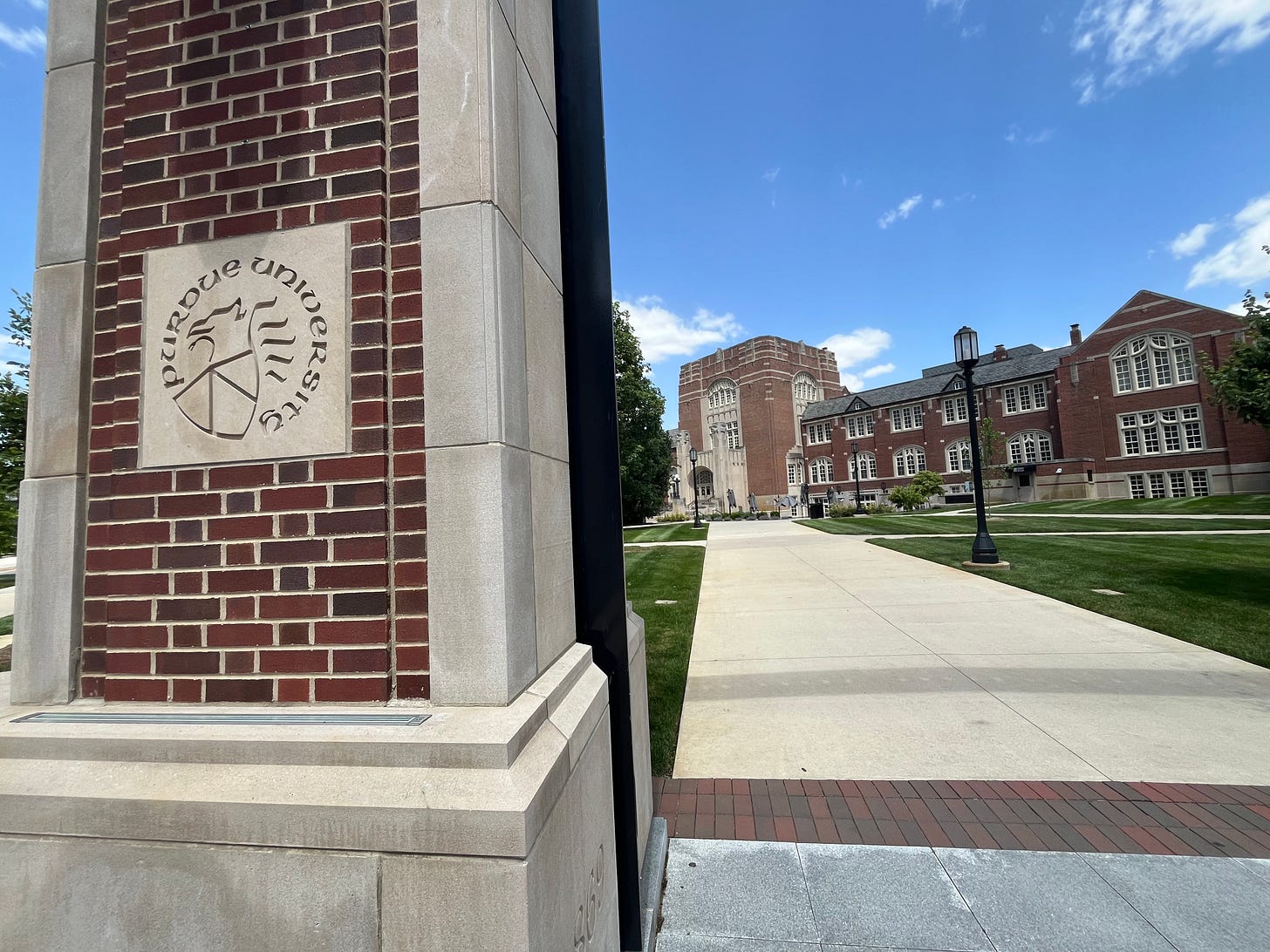What Purdue told a House Select Committee about its Chinese students
Congressional report, accusing campuses of being soft targets for national defense research, says Purdue made recent policy changes in how it handles security for scholars tied to foreign adversaries
Support for this edition comes from Oasis Community, an inclusive, safe, person-centered housing community for adults with intellectual or developmental disabilities being planned in Tippecanoe County. Oasis will hold an annual celebration to mark its progress Oct. 23 at the Lafayette Country Club. For details and to learn how you can help, click the link below.
WHAT PURDUE TOLD A HOUSE SELECT COMMITTEE ABOUT ITS CHINESE STUDENTS
Months after Purdue and five other U.S. universities were labeled by a U.S. House Select Committee as “soft targets” for China for gathering sensitive research critical to national defense, a new congressional report contends that Purdue made a series of policy changes in recent months on travel, funding and visiting scholars connected with countries labeled as foreign adversaries.
The findings, in a report released in September by the U.S. House Select Committee on the Chinese Communist Party, called out universities for admitting students with ties to “defense-focused universities” in China “whose primary mission is to advance military research and development.”
The report blasted lax federal oversight on student visas across higher ed, specifically failed enforcement of an executive order from President Donald Trump’s first term that banned students from Chinese conducting military-linked research; questioned close collaborations between U.S. and Chinese universities and oversight of Chinese national students while working on U.S. campuses; and included accusations that U.S. taxpayers were helping fund research and projects that “risk directly advancing Beijing’s military and technological ambitions.”
In March, U.S. Rep. John Moolenaar, chair of the House Select Committee, wrote in letters to Purdue President Mung Chiang and university presidents at Carnegie Mellon, Stanford and the universities of Illinois, Maryland and Southern California warning that “America’s student visa system has become a Trojan horse for Beijing, providing unrestricted access to our top research institutions and posing a direct threat to our national security.”
His demand was for an accounting of what sort of research students from China were doing, whether they were “disproportionately concentrated in high-tech fields” and where the campuses had “policies in place to prevent foreign nationals from working on projects tied to U.S. government grants” in defense and other sensitive areas.
Six months after responding to a U.S. House Select Committee’s demands, Purdue on Friday released its 47-page letter it sent in April, in response to a Based in Lafayette public records request.
The letter, dated April 1 and written by Purdue Provost Patrick Wolfe, compiled statistics on the number of students from China who were enrolled, their majors and their previous universities, sending them to Moolenaar.
The letter also addressed more than a dozen questions Moolenaar laid out for Chiang and his counterparts in mid-March.




